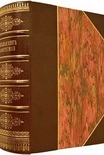Second Place by Rachel Cusk (best free e reader TXT) 📗

- Author: Rachel Cusk
Book online «Second Place by Rachel Cusk (best free e reader TXT) 📗». Author Rachel Cusk
I’d like to go with you, Jeffers, back to the morning in Paris before I boarded the train that held the bloated, yellow-eyed devil: I’d like to make you see it. You are a moralist, and it will take a moralist to understand how it was that one of the fires that started that day was allowed to keep on smouldering over the years, how its core stayed alive unnoticed and secretly fed itself, until the time when my circumstances were finally replenished and it caught alight on the new things and blazed again into life. That fire was laid in Paris, in the early morning, where a seducing dawn lay over the pale forms of the Île de la Cité and the air was held in the absolute stillness that presages a beautiful day. The sky got bluer and more blue and the green fresh banks of foliage were motionless in the warmth, and the blocks of light and shadow that bisected the streets were like the eternal primordial shapes that lie on the faces of mountain ranges and seem to come from inside them. The city was quiet and mostly empty of humans, so that it felt as though it were itself more than human and could only reveal it when there was no one to see. I had lain awake all the short hot summer night in my hotel bed and so when I saw dawn between the curtains I had got up and gone down to walk beside the river. It seems presumptuous, Jeffers, not to mention meaningless, to describe my experience in this way, as if it had the slightest bit of significance. Doubtless someone else is walking beside that same stretch of river at this minute, likewise committing the sin of believing that things happen for a reason, and that that reason is herself! But I need to give you my state of mind on that morning, the exalted sense of possibility I felt, to make you understand what came out of it.
I had spent the evening in the company of a famous writer, who was actually nothing more significant than a very lucky man. I met him at an art gallery opening, from which he took sufficient pains to extricate me that my vanity was gratified. I didn’t get sexual attention very often in those years, though I was young, and I suppose good-looking enough. The trouble was, I had the dumb loyalty of a dog. This writer was of course an insufferable egotist, as well as a liar, and not even a very believable one; and I, alone in Paris for the night, with my disapproving husband and child waiting back at home, was so thirsty for love I would drink, it seemed, from any source. Truly, Jeffers, I was a dog – there was such a heavy weight inside me, I could only writhe senselessly like an animal in pain. It pinned me down in the depths, where I thrashed and struggled to get free and swim to the brilliant surface of life – at least, that’s how it looked from below. In the company of the egotist, tramping from bar to bar in the Paris night, I intimated for the first time the possibility of destruction, the destruction of what I had built; not, I assure you, for his sake, but for the possibility he embodied – which had never once occurred to me until that night – of violent change. The egotist, permanently drunk on his own importance, sliding breath mints between his dry lips when he thought I wouldn’t notice and talking about himself non-stop: he didn’t actually fool me, though I admit I wanted him to. He gave me plenty of rope to hang him with, but of course I didn’t hang him – I played along, half believing it myself, which was more of the luck he’d evidently had all his life. We said goodbye at two in the morning at the entrance to the hotel, where he visibly – to the point of unchivalrousness – decided I wasn’t worth whatever risk to his status quo our spending the night together would have represented. And I went to bed and hugged the memory of his attention until the roof seemed to lift off the hotel and the walls to fall away and the huge starry darkness to embrace me with the implications of what I felt.
Why do we live so painfully in our fictions? Why do we suffer so, from the things we ourselves have invented? Do you understand it, Jeffers? I have wanted to be free my whole life and I haven’t managed to liberate my smallest toe. I believe Tony is free, and his freedom doesn’t look like much. He gets on his blue tractor to mow the tall grass that has to be cut back for spring and I watch him calmly going up and down in his big floppy hat under the sky, back and forth in the noise of the engine. All around him the cherry trees are welling up, the little nubs on their branches straining to burst into blossom for him, and the skylark shoots into the sky as he passes and hangs there singing and twirling like an acrobat. Meanwhile, I just sit staring straight in front of me with nothing to do. That’s all I’ve managed as far as freedom is concerned, to get rid of the people and the things I don’t like. After that, there isn’t all that much





Comments (0)